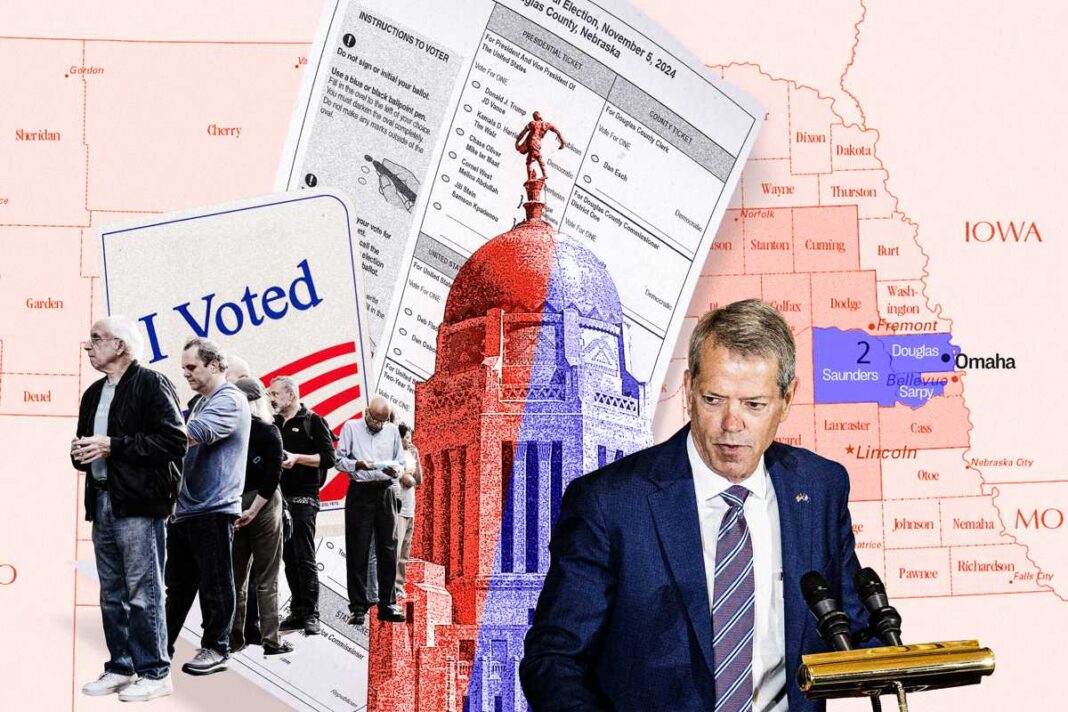With a close election anticipated, Nebraska lawmakers rejected a plan to revert to winner-take-all electoral voting, just weeks from Nov. 5.
The palpable anxiety about the closeness of the U.S. presidential election materialized in an unexpected location this year: Lincoln, Nebraska.
After months of action inside the Nebraska State Capitol and a surge of last-minute politicking from national Republican Party figures, on Sept. 24, Nebraska Gov. Jim Pillen announced he will not call a special session to restore winner-take-all electoral college voting in the Cornhusker state.
Every state but Nebraska and Maine direct all of their electoral votes toward whichever candidate wins the popular vote in that state.
With only weeks until the Nov. 5 general election, political prognosticators in both the Democratic Party and Republican Party are studying the map. They are beginning to believe the Electoral College vote count may be so close that a single vote could be decisive.
Winner Take All
Nebraska, with five electoral votes, assigns an electoral vote to each of its three Congressional Districts and awards two based on the cumulative statewide ballot. It began splitting its electoral vote in 1992.
Since its split, Nebraska has consistently voted for Republican presidential candidates. However, in 2008 and 2020 its 2nd Congressional District, centered on Omaha, Nebraska, sent one of the state’s electoral votes to the Democrats.
In 2024, the nonpartisan, unicameral Nebraska Legislature once again took up the issue of reverting to winner-take-all electoral voting.
On Sept. 13, Pillen announced he would consider calling a special legislative session to vote on a restoration. Since April, he had been pushing the body to get a bill on his desk. However, with the general election only weeks away, Pillen said he will not call a session unless he had a “clear and public” indication that a filibuster-proof 33 of the body’s 49 senators were on board.
Dan Shea, a professor of government at Colby College, said there was “grumbling and consternation” in Maine about Nebraska potentially changing its state’s rules so close to Nov. 5. He said lawmakers in the Midwestern state were likely well aware of a deadline prohibiting Maine from changing its rules on Electoral College voting within 90 days of officially casting its electoral votes on Dec. 17.








